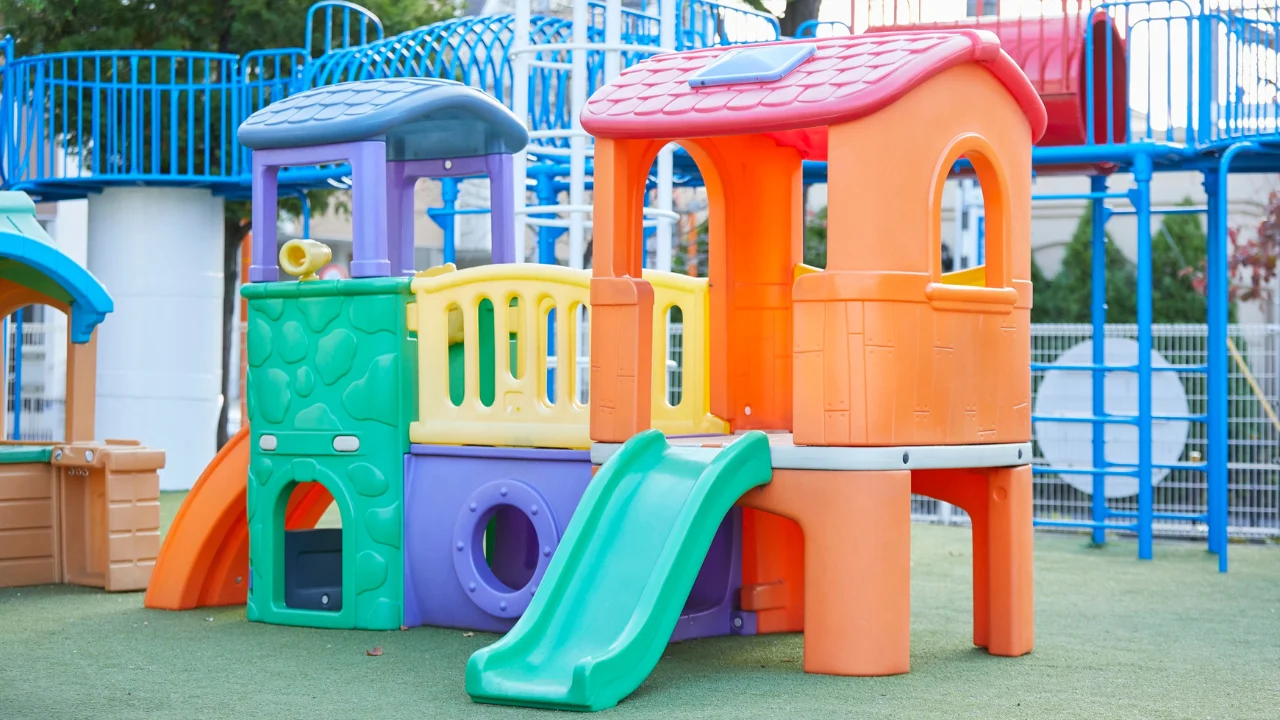
What to do when tragedy strikes a minor who is my child or someone in my care: can a minor make a claim for compensation?
Published on November 17, 2025 by Charles Harrison and Kiera Hoy
In Victoria, if you have suffered an injury in a public or even private space, then you may be eligible to bring a claim for compensation or damages, pursuant to the Wrongs Act 1958 (Vic) (Wrongs Act) [1]. Examples of a public liability claim include if you have been injured in a supermarket or shopping centre, at school, in a restaurant or on the street. For more detail on the meaning ‘public liability’ claims in Victoria, please click here.
Importantly, if an individual (adult or minor) has been injured in a workplace environment, then their claim for compensation is managed under the Workplace Injury Rehabilitation and Compensation Act 2013 (Vic). Alternatively, the Transport Accident Act 1986 (Vic) provides the scheme covering injuries as a result of transport accidents which occur in Victoria.
The above compensation schemes are not restrictive and therefore do not only apply to adults. Where a child has been injured due to the negligence of a third party, then they may be entitled to compensation via these pieces of legislation.
Taking Legal Action
Appointing a Litigation Guardian
A child, legally defined, is a person who is under the age of 18 years (including at the time of accident or incident in question) [2]. A child can sue for damages (compensation) through the appointment of a litigation guardian. In Victoria, a litigation guardian can be appointed by a court or tribunal, pursuant to the rules of the relevant court or tribunal. Generally, a litigation guardian is appointed to a ‘person under a disability’ [3], either being:
(a) A minor (under the age of 18); or
(b) A person who is incapable, by reason of injury, disease, senility, illness or physical or mental infirmity, of managing that person’s affairs in relation to the proceeding.
A litigation guardian assumes the role of instructing a legal practitioner for an individual that lacks the capacity to pursue litigation independently. At its most basic, a litigation guardian’s purpose is to ensure that the proceedings are conducted fairly and the rights of the person under disability are protected. Importantly, a litigation guardian is a substitute decision-maker, which means that they are required to act on what they perceive and consider are the best interests of the individual/child.
When might you bring a claim
Further to the above, Public Liability claims cover school accidents arising inside or during school organised activities including but not limited to school excursions, playground/equipment injuries, bullying and harassment and child sexual abuse.
What is Duty of Care?
As defined in the Wrongs Act, a person and/or entity has a duty of care to take precautions against a risk of harm to a child unless:
- The risk was foreseeable (a risk of which the person and/or entity knew or ought to have known); and
- The risk was not insignificant; and
- In the circumstances, a reasonable person in the person and/or entity’s position would have taken those precautions.
By of examples, the State of Victoria ‘requires all principals and teachers to take all reasonable steps to reduce risk, create a safe environment and implement strategies to prevent bullying’ [4]. Further, a duty of care has been extensively recognised between schools and pupils – see Jury v Commissioner for Railways [5] and Richards v State of Victoria (‘Richards’) [6].
The School’s Duty – Take Reasonable Steps
It is well founded that schools owe a duty of care to exercise reasonable care to avoid or prevent things that could foreseeably cause injury to the students/pupils under their control and supervision [7]. These steps as outlined on the Legal Duty of Care, Victorian Government Website [8] include:
- provision of suitable and safe premises;
- provision of an adequate system of supervision;
- implementation of strategies to prevent bullying; and
- ensuring that medical assistance is provided to a sick or injured student.
The duty of care is non-delegable, meaning that it cannot be assigned to another party. The Courts have confirmed the teacher-student relationship as one where ‘a teacher is to take such measure as are reasonable in the circumstances to protect a student under the teacher’s charge from risks of injury that the teacher should have reasonably foreseen’ [9].
Therefore, in some instances, legal action can be taken when in an environment such as a schooling/educational context, the school has not taken adequate and reasonable steps to make sure individuals in its care are safe from reasonably foreseeable risks/circumstances of harm. In simple terms, this means that the school must take reasonable steps to reduce the risk of certain harm happening.
What Compensation can my child receive?
A legal claim for compensation for a child is proven in the same way that if an adult were to bring the claim. The same laws apply with respect to proving negligence, however, ultimately it will be run by the child’s litigation guardian (usually their parent), as outlined above.
A child has no less rights to recover damages for injury, resulting from negligence, then an adult. One thing to note, however, is how the injury will be assessed under the legislation and whether that injury is both ‘stable’ and defined as a ‘significant injury’. For more information on what makes an injury both ‘significant’ (click here) and ‘stable’ (click here).
The types of compensation available if a child is injured depends on the severity of the injury/s and the ongoing impact of these injury/s. The compensation/damages payable by a wrong-doer (operator of the school, as an example) include the following not exhaustive ‘heads of damage’:
Medical Expenses
A child injured in a school or at the negligence of another third party can make a claim for medical expenses for both expenses incurred to date and ongoing/future expenses. Examples of such include treatment costs including General Practitioner appointments, hospital visits, therapeutic support (psychiatric and/or psychological), physiotherapy appointments, medication expenses, and the like. It is also available to make a claim for out-of-pocket expenses associated with getting to and from medical appointment that otherwise would not have been incurred.
Pain and Suffering
Pain and suffering damages, also referred to as general damages, is a lump sum amount to compensate the injured child for both the physical and psychological harm caused which has affected the child’s loss of enjoyment and/or loss of amenities in life. Importantly, these damages are not easily quantified or calculated and are often up to the discretion of judicial officers such as judges or a civil jury.
Educational Support
Where appropriate, educational support can be a means of compensating an injured child, especially where the injuries have or will continue to affect the child’s schooling and learning environments.
Economic loss
In some circumstances, and depending on the injury/s sustained, there may be a potential claim for future loss of income and/or economic loss due to the long-term effects of the injury/s. This loss of income and/or economic loss would arise from the time that the Plaintiff would have commenced employment in the workforce. This, naturally, involves a degree of conjecture and crystal-balling as to the likelihood of the Plaintiff’s future employment and work capacity.
Time Limits
When any individual brings a claim for compensation, they must be aware that there are certain time frames by which they must bring or have brought a claim by. In Victoria, this is legislated by the Limitations of Actions Act 1958 (Vic) (Limitations Act) [10]. Pursuant to Section 27E of the Limitations Act, as a minor is defined as a disabled person, any court action must be commenced prior to whichever of the following periods is the first to expire:
(a) the period of 6 years from the date on which the cause of action [ie. Negligence or other cause of action] is discoverable by the injured person; or
(b) the period of 12 years from the date of the act or omission alleged to have resulted in the personal injury with which the court action is concerned.
These time frames are an extension of the otherwise standard three years that is given to an adult or non-disabled individual (as defined) bringing a Public Liability claim for damages/compensation.
Conclusion
In summary, a minor can bring a claim for compensation if they have been injured. This involves an appointed litigation guardian acting and instructing their legal representatives (solicitors and barristers) on the minor’s behalf and in the best interests of the minor.
If you have any questions, please get in contact with Carroll & O’Dea Lawyers.
We have an excellent team of personal injury specialists to assist with your claim and will act on a ‘no win no fee’ basis. We have significant experience in acting in such matters.
This article was published on 17 November by Carroll & O’Dea Lawyers and is based on the relevant state of the law (legislation, regulations and case law) at that date for the jurisdiction in which it is published. Please note this article does not constitute legal advice. If you ever need legal advice or want to discuss a legal problem, please contact us to see if we can help. You can reach us on 1800 059 278 or via the Contact us page on our website. If you or a loved one has been injured, use our Personal Injury Claim Check now.
[2] Child Wellbeing and Safety Act 2005 (Vic).
[3] Supreme Court (General Civil Procedure) Rules 2015 (VIC) – REG 15.01.
[4] Legal Duty of Care (Web Page, 18 January 2024) <https://www.vic.gov.au/legal-duty-care>.
[6] [1969] VR 136.
[7] Richards.
[8] Legal Duty of Care (Web Page, 18 January 2024) <https://www.vic.gov.au/legal-duty-care>.
[9] Richards.

